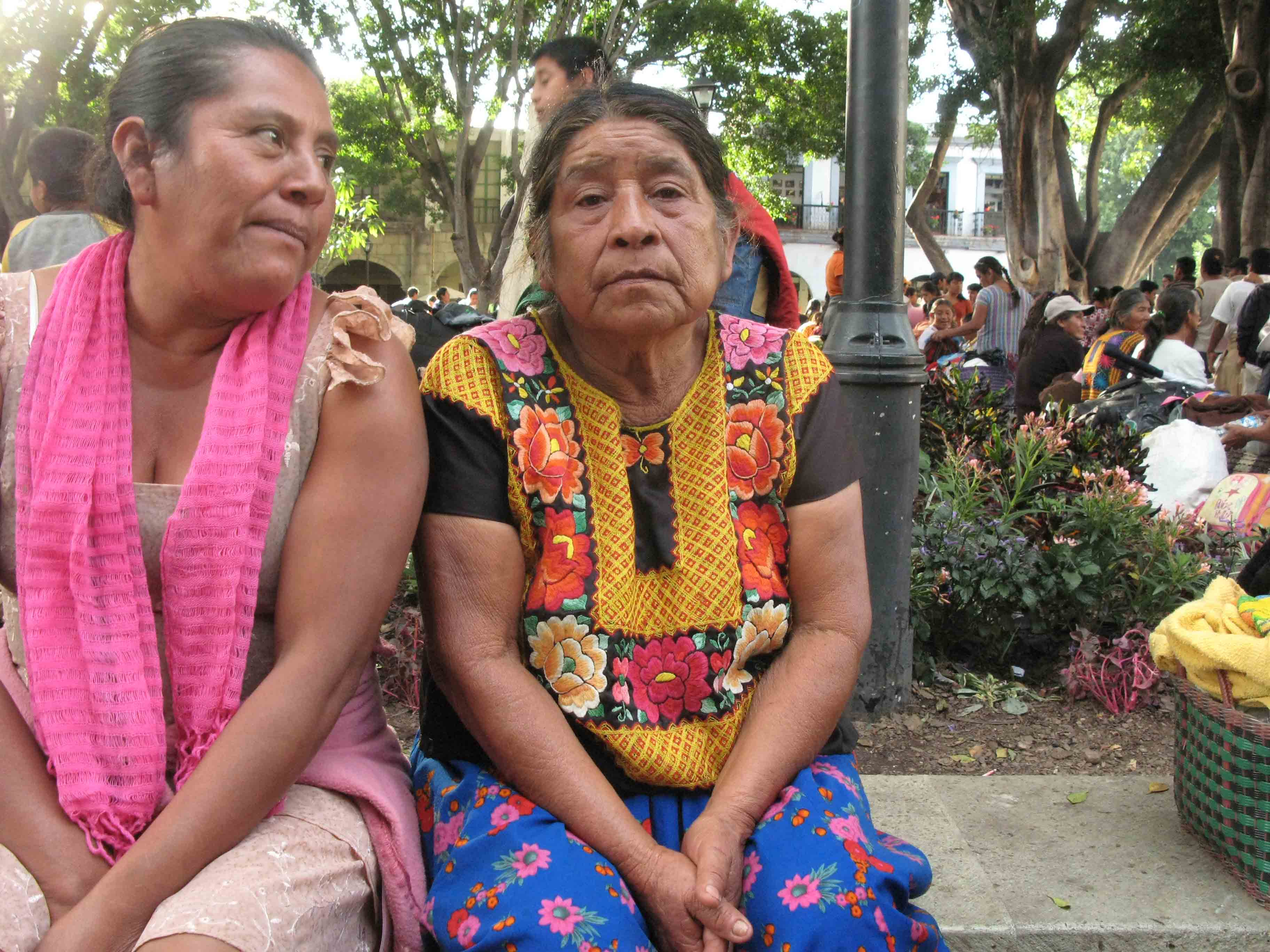Growing up in the mountain village of San Juan Quiahije, in the southern Mexican state of Oaxaca, Maricela Zurita Cruz saw from an early age the special health burdens that affect women there. The women face many obstacles: they are Indigenous, and so confront special problems of language and racism; they have little education and must deal with strong macho attitudes in their own communities; and they are poor people who face difficulty accessing the state's already stretched health-care system.
"I suffered a lot of discrimination at school because I spoke an Indigenous language, was Indigenous, and a woman", says Zurita Cruz, a vibrant 19-year-old whose innovative work on reproductive health care for Indigenous women earned her Mexico's National Youth Award last year.
This spring, she was one of a group of young Mexican leaders to meet with US First Lady Michelle Obama during her tour of the country. Zurita Cruz's path has not been easy. She faced much criticism for studying, she says, with people wondering why she did not simply get married and have children, as many Indigenous girls do—her own mother had Zurita Cruz at the age of just 15 years. With encouragement from her mother, however, Zurita Cruz pursued her studies and received a scholarship from GESMUJER (The Rosario Castellanos Group for the Study of Women), an Oaxacan non-governmental organisation that provides support for Indigenous girls to stay in school. She knew that getting an education was her only hope for a better life: "When I was 10 or 11 I saw that my mother worked all the time. She went to bed later than everyone and got up earlier than everyone else. I knew that it wasn't fair. I asked myself, Why did woman always work harder than men. Why did men do nothing all the time?"' Zurita Cruz grew up with her mother; her father was killed when she was 11 years old.
Like many Indigenous communities in Mexico, maternal mortality has been a problem in San Juan Quiahije. In the village of 4000 people, some 8 h from the capital, malnutrition is pervasive, about 40% of the women are illiterate, and Zurita Cruz knows of two women who have died in childbirth recently. "There are a lot of times that women want to go to the doctor but they are not allowed by their families", she explains. Despite progress at the aggregate level, the state of Oaxaca, which is also among the nation's poorest and most Indigenous, has almost twice the rate of maternal mortality as the national average.
Most people in Zurita Cruz's village speak Chatino, one of dozens of distinct languages spoken by the Indigenous groups in Oaxaca, who make up about a third of the population of the state. Although the younger generation is now learning Spanish in school, most older people in her village have only limited knowledge of it. "You can imagine that this is a big problem, especially when we want people to know what their doctors are saying or when public health presentations are trying to reach them. In my community, there are probably 40% that cannot read Spanish", says Zurita Cruz. "Since woman cannot communicate themselves, they do not go to the clinics."
As part of her scholarship, and working in 18 different villages, Zurita Cruz began translating reproductive health, safe sex, and maternal mortality presentations from Spanish to her community's language of Chatino. She organised teach-ins and started a campaign to urge women to get annual pap smears. She has also translated for Indigenous women on trips to the doctor. Zurita Cruz is now working to teach young people about domestic violence. "We try to educate young men early because it is difficult to change a society when they have been taught a certain way for a long time", she says.
It was for her innovative and dedicated work to help improve Indigenous women's health that Zurita Cruz was awarded the national prize last year. "The importance of this award shows her commitment to her community, the development of her leadership skills, and how she returned to her place of origin to teach others about these important issues", expalins Ximena Avellaneda Diaz, the research director of GESMUJER, the scholarship fund.
Many Indigenous women do not think of medical attention as a right, says Zurita Cruz. "To be able to change this way of thinking takes a long time. I have started first with my family. Then, I had a group of 20 teenagers and I told them as long as we have one person change their mentality then that one person will be able to change someone else's mind, and that is how it works. It is a long process." Her words echoed those of Michelle Obama who, when she spoke to Zurita Cruz and the other young Mexican activists, urged them to be patient in their work. She reminded them of the earthquake in Haiti, saying, "The only thing that happens in an instant is destruction…It takes centuries to build anything meaningful."
Zurita Cruz is now studying at the Institute of Education Sciences at the Autonomous University Benito Juarez of Oaxaca with the goal of continuing her work in community health education. "Right now, I am in school and now I have a duty to the community. But I cannot do it alone. I need help", said Zurita Cruz. "Maybe we could do this politically. Instead of the government spending money on highways, they can spend it on health-education programmes."




